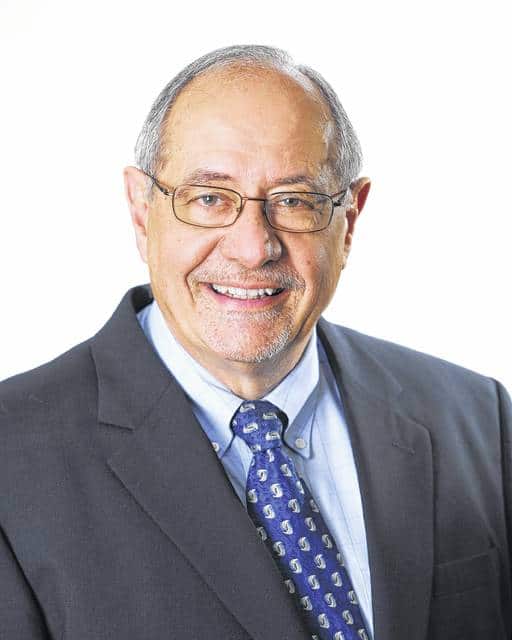
WILMINGTON — CMH will be launching an interventional cardiology program, a first for the health system and the region.
“While CMH has long been this region’s anchor for emergency and specialty care, patients with chest pain and other heart related symptoms are often transferred to other facilities for lifesaving treatment,” according to CMH. “Many of these patients are transferred as far as the Greater Cincinnati area to get the care they need.
But later this year, that will no longer be the case.
Historically, the Ohio Department of Health (ODH) maintained restrictive regulations requiring hospitals to have onsite surgical backup in order to perform a life-saving procedure called a PCI (percutaneous coronary intervention), also known as an angioplasty, or more commonly as a “stent.”
However, in April 2016, ODH revisited this regulation to bring Ohio in line with national standards outlined by the American College of Cardiology (ACC). The ACC has formally stated, after years of clinical trials, that a regional or rural hospital may safely stent a patient without onsite surgical backup, as long as the interventional cardiologist performing the procedure is experienced, enabling community hospitals like CMH to provide interventions.
Greg Nielsen, CEO of CMH, highlighted the impact this will have on patient care.
“Cardiac care is our single largest source of transfers, and it’s past time we treat these patients here,” Nielsen said. “We know we can do it safely and effectively – other hospitals of our size have done so across the country for years – and we’re encouraged that Ohio has joined the rest of the country in enabling life-saving care at community hospitals.”
CMH will be partnering with CardioSolution, a Cincinnati-based company that works with regional and rural hospitals to launch full-scale cardiology programs.
CMH will launch inpatient and outpatient services (not including PCI and heart attack interventions) on May 1, begin elective PCI in early summer, and have full 24/7 coverage for PCI and heart attack victims beginning late summer/early fall.
“We have been anticipating ODH’s regulatory change for quite some time now,” says Perrin Peacock, Co-Founder of CardioSolution. “CardioSolution goes one step beyond national requirements by requiring that all of our interventional cardiologists are board certified or board eligible and have completed a minimum of 500 PCIs after the completion of their fellowship. They’re highly trained, experienced, and have a desire to serve a smaller community, like Wilmington.
“They have the capability to handle 99 percent of all heart patients that come in, and more important, they have the experience to recognize which are among the 1 percent that need to be transferred to a larger tertiary care facility with surgical backup.”
There are three types of cardiologists:
General cardiologist sees heart patients in the clinic; orders and reads non-invasive diagnostic tests like EKG, Echo, and nuclear stress tests.
Invasive cardiologist does all that a general cardiologist does above, plus can perform an angiogram, or “heart cath,” inserting a catheter through the radial (arm) or femoral (groin) artery to check for blockages in the heart.
Interventional cardiologist may perform all the tests and procedures above, plus can do a PCI (stent).
Dr. Rakesh Chawla, interventional cardiologist, will lead the program at CMH and emphasized the need for comprehensive cardiology in this region:
“It doesn’t make sense to send a patient out when we can care for them right here,” said Dr. Chawla. “Most of our patients are seniors, and transferring them to other facilities means their family members have to take time off work, arrange child care, and a whole host of other ramifications. We will be bringing world-class cardiology care to Wilmington so none of that is necessary.
“Minutes literally mean life or death in our world, and it’s our goal to provide life-saving intervention as quickly as we can, and that means doing it here at CMH.”
CMH has already begun updating and adapting their current catheterization lab (cath lab), that has previously been used primarily for peripheral vascular surgery and interventional radiology.
“We can easily equip and modify our current lab to do angiograms and elective PCI cases,” saidNielsen. “In the coming months, we plan to offer coverage for heart attack victims and other urgent and emergent patients and eventually we will build a second lab here at the hospital.”
Dr. John Hollon, Chief Medical Officer of CMH and founding partner of Main Medical Inc., spoke to the importance of this program launch and CMH’s continuing investment in specialty care:
“I grew up here, and I have practiced internal medicine here for 40 years now. This is one of most exciting developments for our community that I’ve seen in a long time,” said Dr. Hollon.
“Now, for the first time in our history, we don’t have to ship patients out that need heart care. We can take care of them right here, at home,” adds Nielsen.
Cardiology clinic hours will be available starting in early May. Those interested can contact CMH for more information.




